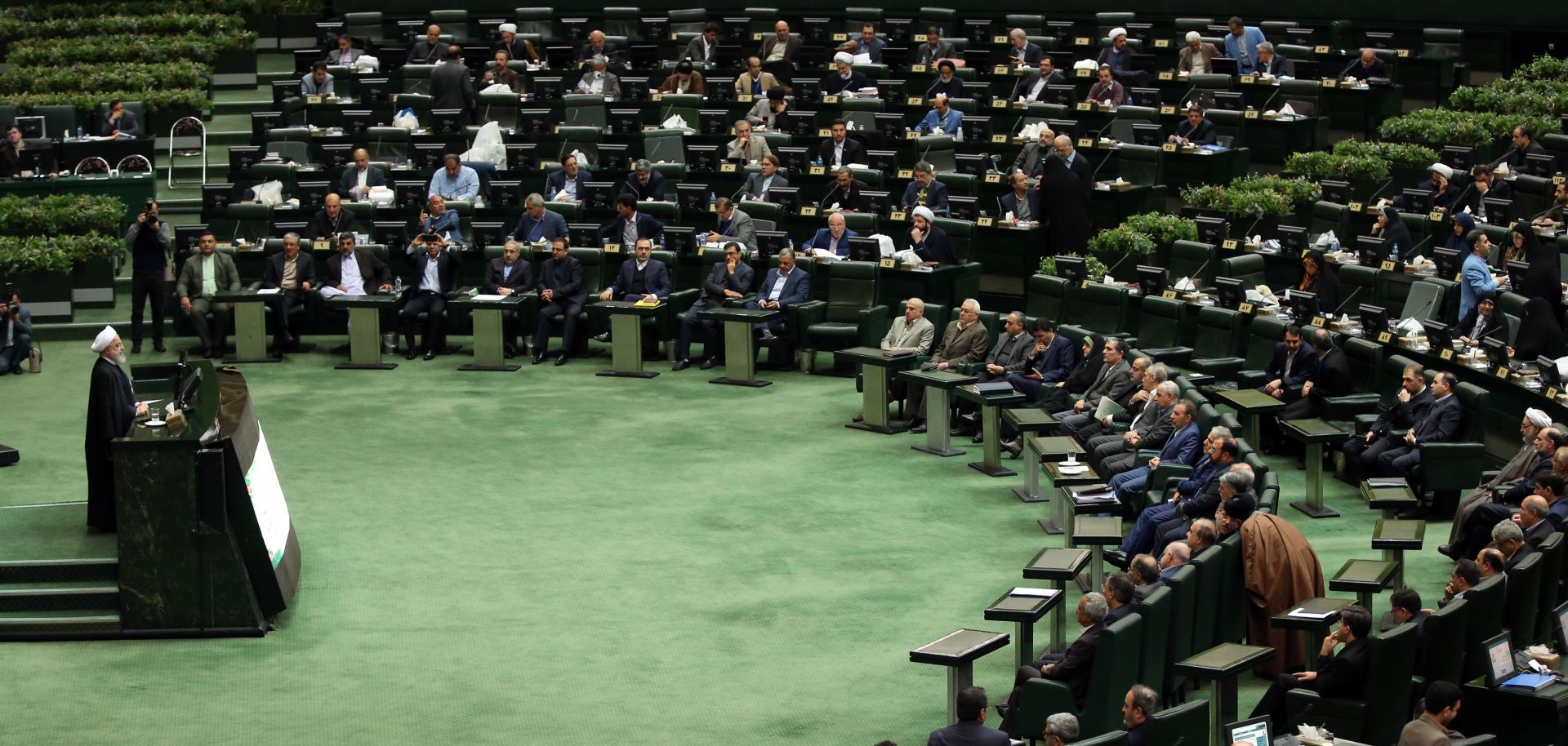GUIDANCE
What Iran's Next Vote Means for Policy and the Presidency

Feb 19, 2020 | 10:00 GMT

Iranian President Hassan Rouhani addresses the country's parliament in Tehran on Dec. 8, 2019. On Feb. 21, Iran will hold its first parliamentary elections since the United States began ramping up its 'maximum pressure' campaign.
(STR/afp/AFP via Getty Images)
Highlights
- Iran's economic struggles and intensifying tensions with the United States have helped clear the path to victory for conservative candidates in the country's upcoming parliamentary elections.
- The selection of the next parliament speaker will help indicate whether policy debates in the new legislature will take a more hard-line or traditionalist stance.
- Regardless of the election outcome, Iranians' mounting disillusionment with their government could ultimately undermine the next parliament's legitimacy, as well as the electoral prospects of moderate presidential candidates in 2021.
Subscribe Now
SubscribeAlready have an account?
